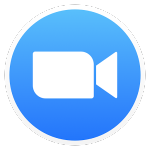Creative Writing for Upper School Students
Required Materials:
Books and supplies are not included in the purchase of the course.
- Creative Writing Journal

Miss Morgan Moore
[email protected]Morgan Moore has been teaching ever since she learned how to explain to her younger siblings the difference between an adjective and an adverb. As a homeschool graduate, Morgan loves the classical, online learning environment and began professionally teaching English, Integrated Humanities, and Writing to middle schoolers and high schoolers upon graduating with her Bachelor’s in English: Creative Writing from Liberty University online in 2022. Wanting to take her academic studies even further, she graduated with a M.F.A. in Creative Writing the summer of 2024, also from Liberty University online.
Being the oldest daughter of nine siblings has not only accustomed Morgan to sharing dressers, beds, and clothes, and hearing the battle cries of blanket-caped warriors running through halls, but it has also familiarized her with both the challenges and joys a classical, homeschool education can provide. It is her experiences with these situations that she brings to her teaching to encourage both her students and their parents and show how exciting learning truly can be.
Morgan loves children and her goal is to one day marry a God-fearing man and raise a big family of her own who she can shower with tales of chivalrous knights and daring hobbits. Until that time comes, however, she believes that the Lord has called her to teach others’ children. Now more than ever, children need to know the joy and hope that literature and writing may bring them; for, to quote C.S. Lewis, “it is so likely that children will meet cruel enemies, [so] let them at least have heard of brave knights and heroic courage.” When she’s not teaching, you’ll find Morgan writing her novel, knitting lots of sweaters, playing the guitar or piano, walking in the North Carolinian outdoors, and singing along with The Sound of Music—all while drinking lots of coffee.
.png?cache=false)
Mrs. Sarabeth Sangrey
[email protected]A homeschool graduate with a BA in English Literature from Geneva College, Sarabeth Schuck loves engaging in discussions of history, theology and philosophy, writing stories, singing psalms, reading great books, hiking, and learning homesteading skills. She has also enjoyed many biology classes and has an interest in human physiology. Growing up in a family culture built around curiosity and stories, Sarabeth could often be found reliving the stories she heard with her four younger siblings. As she grew older, this love of reading blossomed into a wholehearted passion for learning, which she loves to impart to those around her. Recently married, Sarabeth looks forward to establishing a household with her new husband and to someday homeschooling her own children.
Quarter 1
-
Building Blocks
- In order to write, students must learn the building blocks of every story. This quarter we will study the 5 elements of any story: setting, plot, characters, conflict, and theme.
Quarter 2
-
Finding your voice
- Students will explore voice, dialog, perspective, description, tropes, and story structure, as well as how to conquer writer’s block.
Quarter 3
- **Digging deeper: how to hone your craft as a writer **
- This quarter, students will delve into different styles and genres such as minimalism, realism, historical fiction, and drama.
Quarter 4
-
Novel Project
- Bringing together everything they have learned over the course of the year, students will complete a novella project, writing one chapter a week, and reading and responding to their peers.
![]() Computer: You will
need a stable, reliable computer, running with a processor with a speed of 1 GHz or better
on one of the following operating systems: Mac OS X with Mac OS 10.7 or later; Windows 8,
7, Vista (with SP1 or later), or XP (with SP3 or later). We do not recommend using an
iPad or other tablet for joining classes. An inexpensive laptop or netbook would be much
better solutions, as they enable you to plug an Ethernet cable directly into your computer.
Please note that Chromebooks are allowed but not preferred, as they do not support certain
features of the Zoom video conference software such as breakout sessions and annotation,
which may be used by our teachers for class activities.
Computer: You will
need a stable, reliable computer, running with a processor with a speed of 1 GHz or better
on one of the following operating systems: Mac OS X with Mac OS 10.7 or later; Windows 8,
7, Vista (with SP1 or later), or XP (with SP3 or later). We do not recommend using an
iPad or other tablet for joining classes. An inexpensive laptop or netbook would be much
better solutions, as they enable you to plug an Ethernet cable directly into your computer.
Please note that Chromebooks are allowed but not preferred, as they do not support certain
features of the Zoom video conference software such as breakout sessions and annotation,
which may be used by our teachers for class activities.
![]() High-Speed Internet Connection:
You will also need access to high-speed Internet, preferably accessible via Ethernet
cable right into your computer. Using Wi-Fi may work, but will not guarantee you the optimal
use of your bandwidth. The faster your Internet, the better. We recommend using a connection
with a download/upload speed of 5/1 Mbps or better. You can test your Internet connection here.
High-Speed Internet Connection:
You will also need access to high-speed Internet, preferably accessible via Ethernet
cable right into your computer. Using Wi-Fi may work, but will not guarantee you the optimal
use of your bandwidth. The faster your Internet, the better. We recommend using a connection
with a download/upload speed of 5/1 Mbps or better. You can test your Internet connection here.
![]() Webcam: You may
use an external webcam or one that is built in to the computer. Webcam Recommendations:
Good (PC only) | Best (Mac and PC)
Webcam: You may
use an external webcam or one that is built in to the computer. Webcam Recommendations:
Good (PC only) | Best (Mac and PC)
![]() Headset: We recommend
using a headset rather than a built-in microphone and speakers. Using a headset reduces the
level of background noise heard by the entire class. Headset Recommendations: USB | 3.5mm
Headset: We recommend
using a headset rather than a built-in microphone and speakers. Using a headset reduces the
level of background noise heard by the entire class. Headset Recommendations: USB | 3.5mm
![]() Zoom: We use a web
conferencing software called Zoom for our classes, which enables students and teachers to
gather from around the globe face to face in real time. Zoom is free to download and easy
to use.
Zoom: We use a web
conferencing software called Zoom for our classes, which enables students and teachers to
gather from around the globe face to face in real time. Zoom is free to download and easy
to use.  To
download Zoom:
To
download Zoom:
- Visit zoom.us/download.
- Click to download the first option listed, Zoom Client for Meetings.
- Open and run the installer on your computer.
- In August, students will be provided with instructions and a link for joining their particular class.
![]() Scanner: In this
class, students frequently submit homework assignments by scanning pages from their workbooks.
Students and/or their parents should have easy access to a scanner and the ability to use it.
Scanner: In this
class, students frequently submit homework assignments by scanning pages from their workbooks.
Students and/or their parents should have easy access to a scanner and the ability to use it.
Step 1
Step 2
Step 3
Step 4
Explore our courses!
First, read the available course descriptions, noting prerequisites, target grades, and course objectives. If you think your student is prepared for the course, go ahead and register. After registration, a placement assessment may be provided to students, depending on the course and the student's previous enrollment with Scholé Academy. Registration is finalized when the student's placement assessment has been returned by the course instructor with placement confirmation.
All Courses | By Grade
Read the Student-Parent Handbook.
Please take careful note of our teaching philosophy, our technology requirements, our school policies, the parent agreement, and the distinctions between our grade levels.
Double-check the course section dates and times.
Make sure they don't conflict with other activities in your schedule or other courses you are purchasing. Our system will not catch double-bookings!
You're ready to add course selections to your cart!
Our Assistant to the Principal will be in touch with you after your enrollment to help you with next steps, including any placement evaluations that may be required for your course selections.
This registration will be finalized when the student's placement assessment has been returned by the course instructor with placement confirmation.
